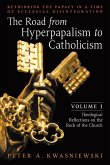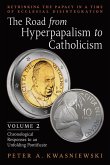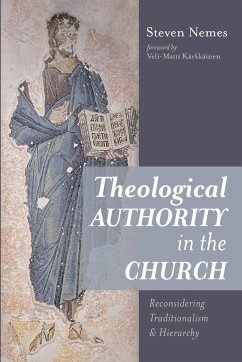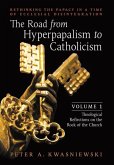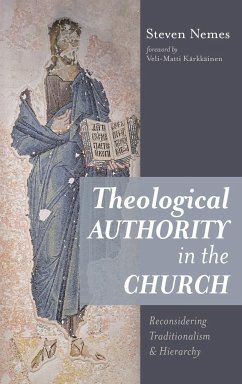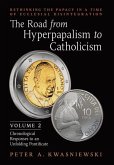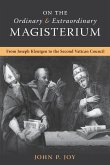"What are the implications of Vatican II for the understanding and concrete exercise of doctrinal teaching authority in the Catholic Church?" Teaching with Authority faithfully represents the teaching of Roman Catholicism on the Church's doctrinal authority while highlighting areas where a gap remains between an ecclesiological vision of the Church informed by Vatican II and the popular understanding and concrete exercise of that authority in the life of the Church today. Dr. Gaillardetz shows that Vatican II did not so much produce one new ecclesiology as it recovered a number of ecclesiologies from biblical and patristic sources. Using images like the people of God, body of Christ, temple of the Holy Spirit, and pilgrim Church, along with such concepts as mystery, communion, and sacrament, the council breathed new life into reflection on the nature and mission of the Church. Since Vatican II, much work has been done by ecclesiologists to explore the new directions suggested by the Council. This book contributes to that post-conciliar project by developing a comprehensive theology of doctrinal teaching authority consonant with the ecclesiological vision of Vatican II. Theologians and graduate students of Roman Catholic ecclesiology will benefit from the scholarship behind Teaching with Authority. And, because of its comprehensive yet non-technical treatment of doctrinal authority in the Roman Catholic Church, it's also a useful reference for all in pastoral ministry-ordained and non-ordained. Teaching with Authority's structure reflects the traditional three-fold distinction among the subject of doctrinal teaching, the object of doctrinal teaching, and the exercise or act of doctrinal teaching. However, the developments of the Second Vatican Council remind us of the importance of a fourth category, the reception of Church teaching by the whole people of God, which this work addresses. Chapters in Part One are: "The Renewal of Ecclesiology at the Second Vatican Council," and "The Teaching Office of the Church." Chapters in Part Two are: "What the Church Teaches: In Service of the Word of God," and "What the Church Teaches: Gradations of Church Doctrine." Chapters in Part Three are: "How the Church Teaches: The Assistance of the Holy Spirit," "How the Church Teaches: The Ordinary Magisterium," and "How the Church Teaches: The Extraordinary Magisterium." Chapters in Part Four are: "Receiving and Responding to the Word: Corporate Reception of Church Teaching," and "Receiving and Responding to the Word: Personal Reception of Church Teaching." Each chapter includes a select bibliography of English language resources aimed at the non-specialist. Dr. Gaillardetz concludes with a brief reflection on the future of the Church's teaching ministry.
Hinweis: Dieser Artikel kann nur an eine deutsche Lieferadresse ausgeliefert werden.
Hinweis: Dieser Artikel kann nur an eine deutsche Lieferadresse ausgeliefert werden.


